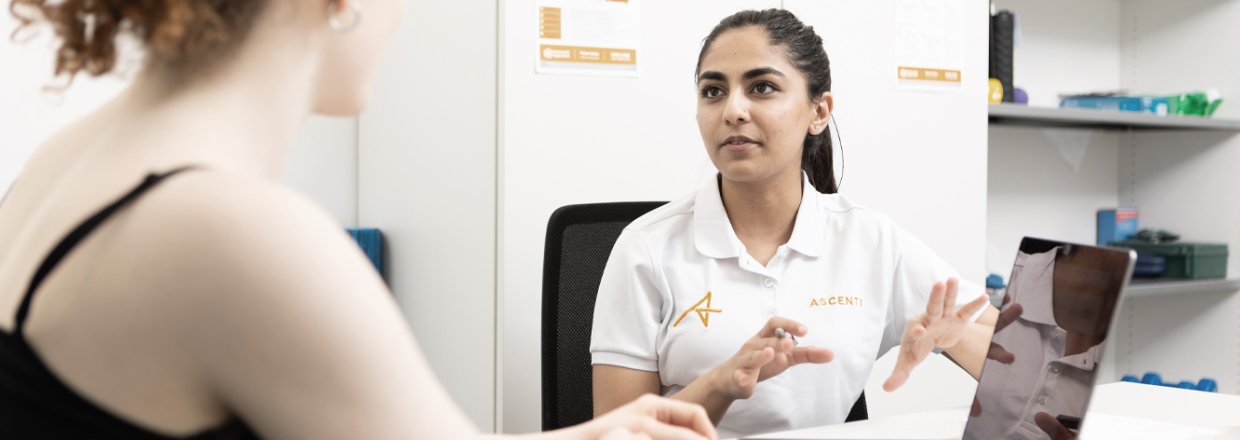From NHS patients to PMI members/customers, the varied caseload that our physios treat provides them with a range of interesting clinical presentations.
We caught up with MSK Physiotherapist, Saniya Panjwani, who shares why she enjoys working with a varied caseload and why it's important for her clinical development as a physio.
What do you enjoy most about the variety of your caseload?
I enjoy the challenges that come with the complexity of the varied caseload. It helps me to improve my clinical skills in all areas of MSK physio, including the biopsychosocial factors.
Why do you think having a varied caseload in clinic is important for your profession?
It’s important to develop as a physiotherapist throughout your career, and working with different patient groups is a great way to do this.
A varied caseload allows you to develop your critical thinking, clinical reasoning, communication and patient management skills, and gives you a better understanding of your knowledge gaps.
What support does Ascenti give you when preparing you to treat and care for different types of patients?
I receive virtual and face-to-face guidance, feedback, and suggestions from my Physiotherapy Development Lead (PDL) and mentor on a regular basis.
We have group meetings where we discuss the latest evidence-based practices and techniques needed to provide better treatment to various patients.
I also have my manager who is always there to support me for the non-clinical part of the job, for instance, if there are any behavioural challenges from the patient’s side.
What advice would you give to someone looking to get more variety in their MSK caseload?
Firstly, I would advise them to not be scared to take on a varied caseload. No physiotherapist is perfect, and we all are learning something new every day.
One of the best ways to learn and develop is to go for it, and then reflect on where the knowledge gap is, what you could have done differently and what you want to do better next time.
Secondly, it is important to remember that we are not here to ‘fix’ them, but we are here to ‘guide’ them to do things which are better for them. With a varied caseload it is likely that you will not be able to reach every patient’s expectation, but that does not define one’s credibility.
Can you tell us about a particular patient from one of the referrals that you enjoyed treating?
I had a patient who was a bus driver by profession and was unable to work for around six months due to pain in his left knee. The symptoms had reached the point that even weight bearing on it was very painful and he was hardly able to bend his knee.
The patient informed me that his doctor had suggested that he needed surgery, but advised that a few physiotherapy sessions before would help him with post-surgery rehabilitation.
After the first physio session, he was very happy, and this motivated him to be compliant with the exercises and advice I gave him. After 5-6 sessions of physiotherapy, he started a phased return to work.
When he went back to see his doctor, they were so impressed by his recovery that surgery was no longer needed at this stage, but an injection and continued physio instead.
I enjoyed treating him because he always looked forward to his sessions, he did the exercises and followed my advice religiously, and the results were incredible.
What is the best thing about working at Ascenti?
The best thing about Ascenti is the positive working environment and tremendous support from peers in both clinical and non-clinical aspects.
Everyone is always there to support you in every way possible, so even though we practice autonomously, it does not feel like we are all by ourselves.
